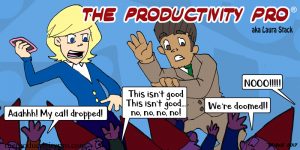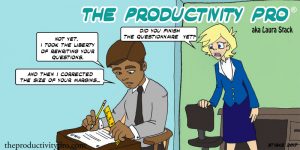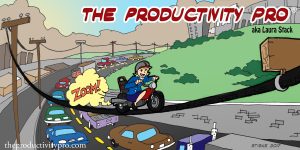
"The really expert riders of horses let the horse know immediately who is in control, but then guide the horse with loose reins and seldom use the spurs." —."—Sandra Day O'Connor, retired Associate Justice of the U.S. Supreme Court. In a recent episode of the T.V. series Stranger Things, the four main characters, all young boys, show up at school on Halloween dressed as Ghostbusters. The problem is, two have dressed as Bill Murray's character. When they argue about it, one boy tells the other, "We decided I would be Venkmann!" and the other responds, "You decided that. I didn't." This immediately made me think about delegation, the art of sharing responsibility with team members by handing off some of your work to them. Even if you're not a manager right now, you'll probably end up in … [Read more...]











